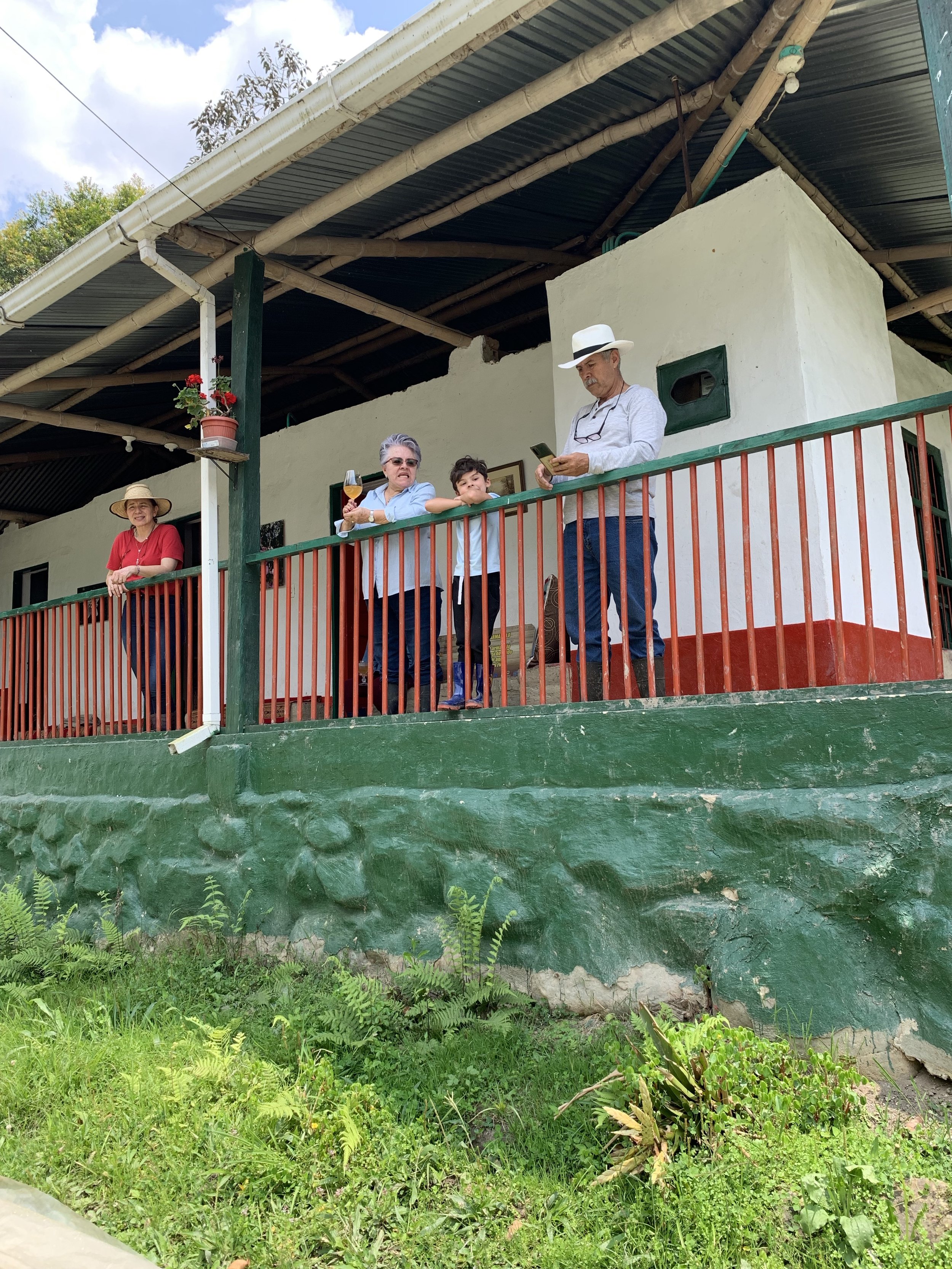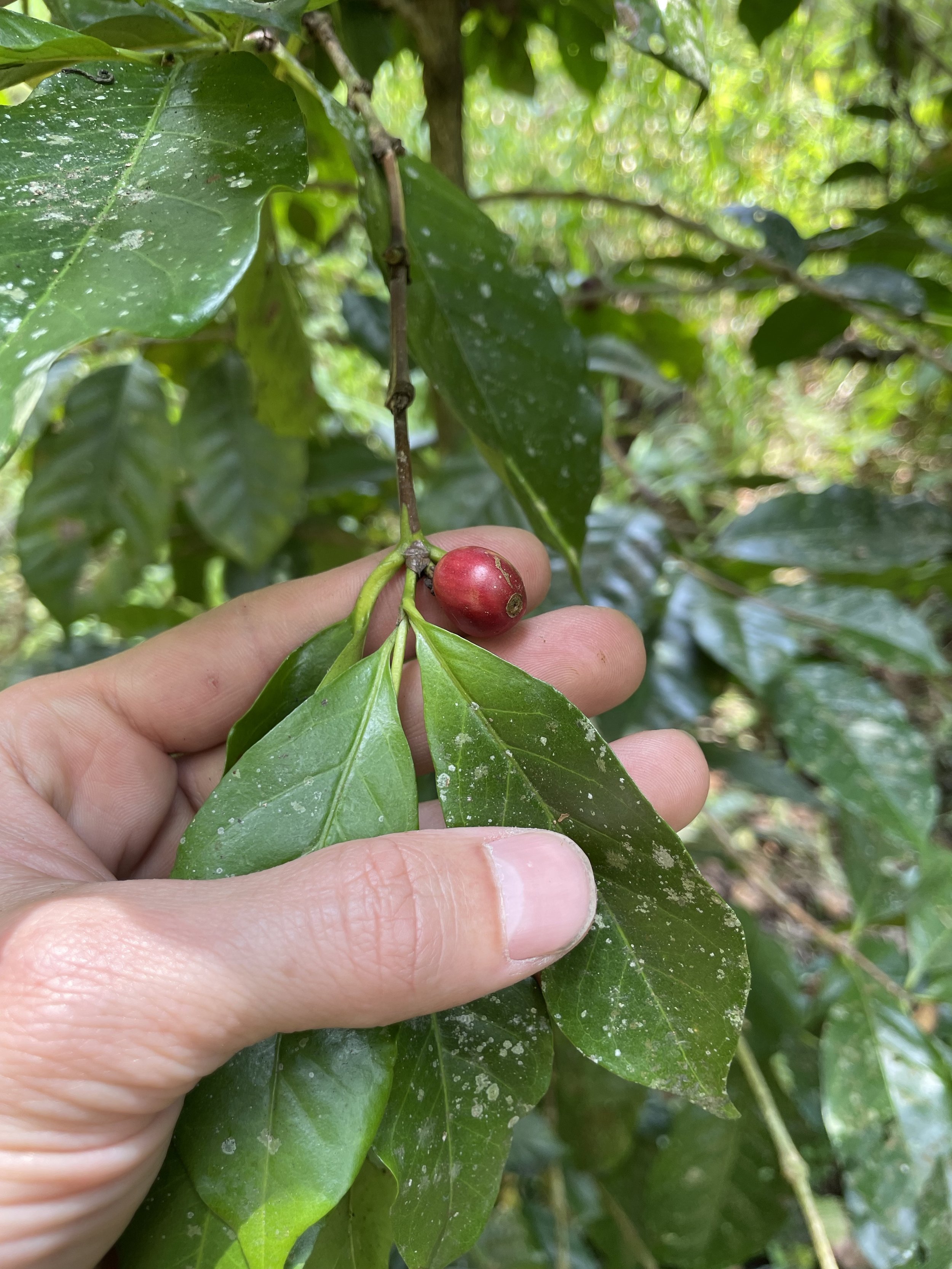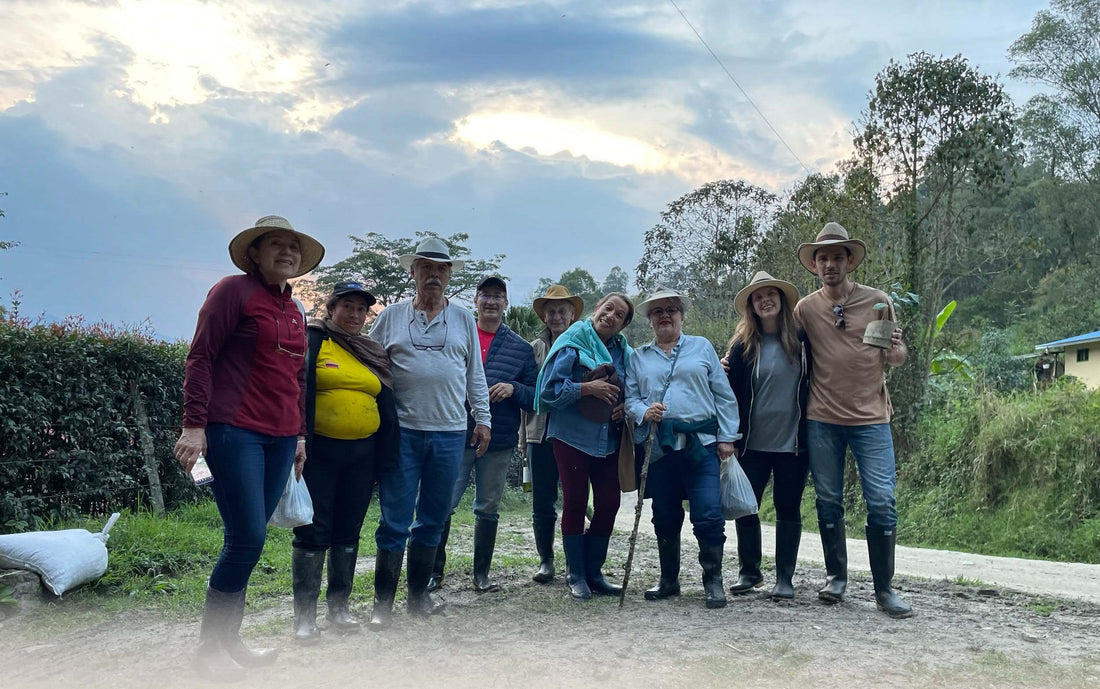
The Colombia Cocaine 4 Project (one of our most popular coffee beans) was created to help a small Colombian farm. In the past, it was controlled by the cartel. Needless to say, they were not farming produce like coffee beans. The farm was forced by death threats to farm coca for the notorious drug cartel for many years. The farm now has had the opportunity after gaining their freedom to farm coffee plants. By buying beans from this particular farm, we are supporting them directly and helping them to have a new way of life. A life free from the cartel. A life free from fear. A life of abundance and blessings that they never knew before.
We just returned from a trip to Colombia to visit the Colombia Cocaine 4 Project coffee farm (& to visit family.) To say it was humbling experience is an understatement. As a consumer, we rarely think about where our products are coming from. When we sought out to open BrownDog Roasting, my wife and I always knew we would support the smaller farms because they are the ones doing the hard work behind the scenes and getting paid very little vs the larger farms that help to support bulk orders from large companies like Starbucks. The support doesn’t come from just a monetary level, it comes with the experience and knowledge of what goes into growing the plant, harvesting the bean, and creating the finished product that is shipped to us to roast for you.

Our trip started out early in the morning.
The sun was beaming, and it was a beautiful 75 degrees Fahrenheit. Coming from the PNW winter, our family was overjoyed with this weather. We purchased rubber boots, which Alvaro, one of the farmers had recommended for our coffee farm adventure. Apparently, sneakers were not going to cut it for the day that was planned for us.

Ralph was born ready!
Upon arrival we were greeted by Alvaro and his two dogs, Tay and Bernardo. Our group consisted of myself, wife, 5-year-old son, mom, dad, aunt, and uncle. We all definitely looked the part with our rubber boots & sombreros.
We followed Alvaro down a path that was leading us into the dense forest of Colombia. After about twenty minutes we came upon a river. At this point it was necessary for us to walk across the river and our feet were thanking the rubber boots. Another twenty minutes or so we reached a spot high above a river and Alvero’s wife, Nayibia was stationed there awaiting our arrival. She offered us refreshment with fresh squeezed lemonade mixed with coffee, refresco de café. Although we were in the shade of the forest, we were all feeling the heat of the day and this just hit the spot. Nayibia informed us that the farm has been in her family for over fifty years, and she was born on the land and grew up here. She spoke about her families’ hardships during the time of the cartel and now for fifteen years they have been free from the constraints that were put on them. Fifteen years may seem like a long time, but it has taken that long for her family to bounce back from what happened on their land. The cultivation of their land from coca to coffee has just started to take off in the past couple of years and they now have a steady crop of coffee plants that allows harvesting once a year.

Refresco de Cafe
We finished our refresco de café and continued. We hiked down to the river’s edge where Alvaro and Nayibia explained the importance of the river. The water was said to be good luck to those who stuck their feet in. It also is symbolic for abundance for the crops. Nayibia had a tote bag filled with towels and we removed our boots and socks and waded in the water (which was surprisingly very cold, yet refreshing.) After drying off, we continued hiking to the coffee farm. The coffee plants stretched as far as the eye could see and beautiful delicate white flowers adorned them. These plants flourish in the shade and are umbrellaed by the forest above and wild banana trees. Unfortunately, our timing was off by a few months, so we didn’t get to see many cherries. When the coffee plant is ready to harvest, bright red fruit called a cherry is harvested and peeled away to expose the coffee bean all by hand.
Bees and butterflies danced from bush to bush. The pollinators are so important for the longevity and vitality of the farm, Alvaro and Nayibia have placed a bee farm on the land as well (which we also got to tour). The honeybees infuse the coffee plants with honey, so to speak, which helps the coffee bean produced to be sweet. This is why so many of you love the tasting notes of the Colombia Cocaine 4 Project and its divine sweetness.
We hiked to another part of the land and saw an abyss of coffee plants that adore direct sunlight. This is the land that was recently acquired due to the support of us purchasing their coffee beans. These plants were situated on the mountain side and made me have an entire knew understanding of the amount of physical work it takes to harvest the cherries. The slope on the mountain was at least 60%. It is quite an incredible feat for them to harvest every single coffee bean by hand.

Our Coffee Cherries
To round up our beautiful day, Nayibia & Alvaro welcomed us into their home and had cooked us the most authentic and delicious Colombian cuisine. At there home in the yard were many drying troughs that held the latest crops. This is where the cherries had already gone through the washing process and the bean was left to sun dry.
We left the farm as the sun was setting and we all felt beyond grateful for the opportunity. This farm is so special and BrownDog Coffee Roasting is excited to continue supporting and providing to them. We hope that you will continue supporting them as well with your purchase of this bean. Not only is it absolutely delicious, but it is coffee with a cause.









